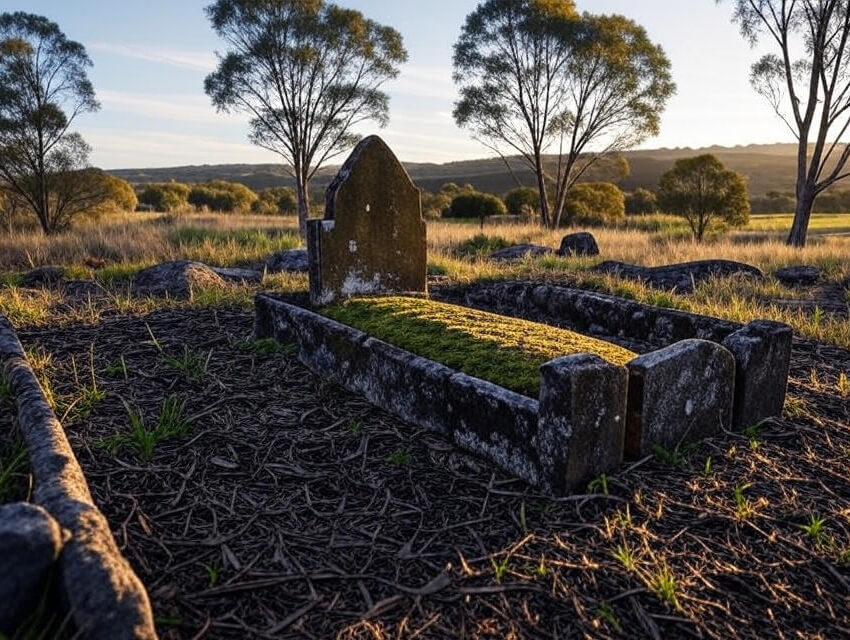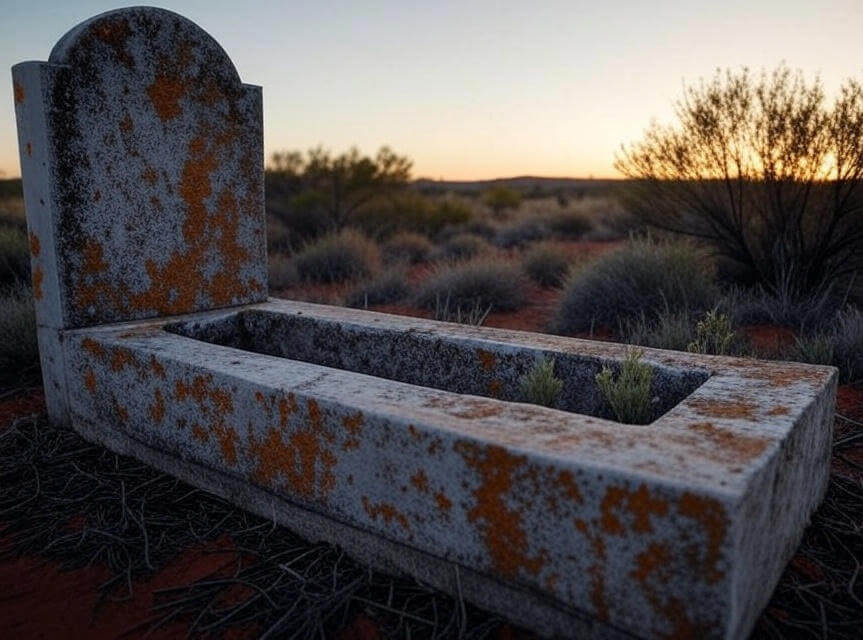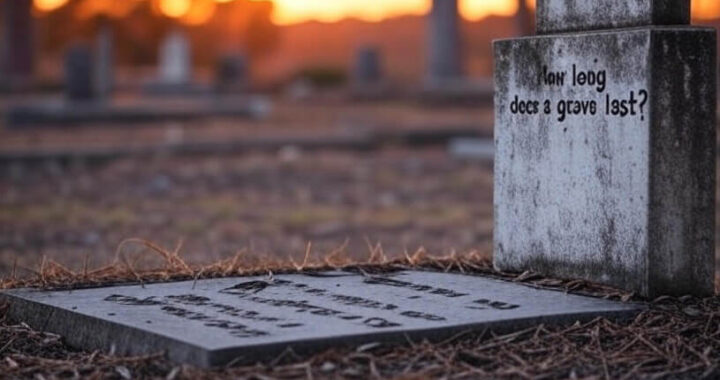Many people think graves last forever. This is not true in Australia. Graves have different rules in each state. Some last 25 years, others can be perpetual. Understanding these rules helps families make good choices about burial plans.
When families buy burial plots, they don’t own the land. They purchase burial rights or interment rights. These rights have time limits in most places.
Grave Lease Systems Across Australia
Different states have different rules for grave duration:
Victoria: A right of interment for a place of interment that can accommodate both bodily remains and cremated remains (for example, graves, vaults and mausoleum crypts) must be perpetual (forever). This means graves for bodies last forever in Victoria.
Western Australia: No grave in Western Australia is forever. All graves are sold with a 25-year lease known as a “Grant of Right of Burial”. Families must renew these leases to keep graves.
South Australia: Grave recycling happens when leases expire. Under the Burial and Cremations Act 2013 of South Australia, a site may be reused once an interment right expires — usually after a set period has elapsed and if no relative or other party can be found to take on the right (and the payment for it).

What Happens When Leases Expire?
When grave leases end, several things can happen:
Families can renew the lease if they pay the fees. This keeps the grave active for another term.
If no one renews, the cemetery can reuse the space. The existing burial is removed and replaced lower down in the grave so that another burial can be included on top. The headstone is either smashed and buried with them, or removed to an inconspicuous place.
Some cemeteries contact families before leases expire. They send notices asking if families want to renew.
Real Family Experience
Margaret from Perth shared her story about her grandfather’s grave. His 25-year lease expired in 2019. The cemetery sent a letter asking if the family wanted to renew for another 25 years.
“We were shocked,” Margaret said. “We thought granddad’s grave was permanant. The renewal cost $800, but we paid it. We couldn’t bear the thought of losing his resting place.”
Margaret’s family learned an important lesson. They now save money each year for future renewals.
Perpetual vs Limited Rights
Australia uses two main systems:
Perpetual Rights: These last forever. Families never need to renew. Victoria uses this system for body burials. The graves stay protected forever.
Limited Rights: These have end dates, usualy 25 years. Western Australia and parts of other states use this system. Families must renew or risk losing the grave.
Cremation Rights: A right of interment for a place of interment that can only accommodate cremated remains (such as a niche wall or rose garden) can be either perpetual (forever) or limited to 25 years (if the cemetery trust offers this).

Record Keeping Requirements
Before cemeteries can reuse graves, they must keep records. The Act requires that details of both the grave and the memorial are recorded photographically and in writing for posterity. This helps preserve family history even when graves change.
Modern technology makes this easier. Laser scanning and digital photos create permanent records. Families can access these records later.
Historical Context
Grave reuse is not new. Over the entirety of human history, around 108 billion people have lived – and died. That’s a lot of bodies that need disposing of in some way. Space limits force cemeteries to reuse land.
Headstones at the Dudley Park cemetery in Payneham, South Australia, were recently bulldozed as part of the ongoing “recycling” of more than 400 graves. Many families found this upseting and didn’t expect it.
Financial Impact on Families
Grave maintenance creates ongoing costs:
- Initial burial rights purchase
- Renewal fees every 25 years (where aplicable)
- Maintenance charges
- Memorial upkeep costs
Families need to plan for these expenses. Setting aside money each year helps cover renewal costs.
State-by-State Differences
Each Australian state has different rules:
New South Wales: Mixed system with varying lease terms depending on cemetery type and age.
Queensland: Most graves have renewable terms, though some older sections may be perpetual.
Tasmania: Limited information available, but most follow renewable lease systems.
Northern Territory and ACT: Smaller populations with varied local rules.
What Families Should Do
Families can take several steps to protect graves:
Keep paperwork safe. Store burial certificates and lease documents in secure places.
Update contact details. Make sure cemeteries can reach you about renewals.
Plan for costs. Save money for future renewal fees.
Tell family members. Make sure relatives know about lease requirements.
Check lease dates. Mark calender reminders for renewal times.
Cemetery Financial Pressures
If the sole source of a cemetery’s income derives from the leasing of plots — as is the case with many independent cemetery trusts — how are they to remain financially viable when all the spaces are filled? This forces cemeteries to recycle old graves.
Land costs and maintenance expenses keep rising. Cemeteries need income to stay open and provide services.
Heritage Protection
Some graves get special protection. If a grave is considered a heritage site, however, different legislation takes precedence. Historic or culturally important graves may last longer.
Famous people’s graves often get heritage listing. This protects them from removal or recycling.
Conclusion
Grave duration in Australia varies by state and cemetery type. Perpetual rights last forever but cost more. Limited rights need renewal every 25 years or so.
Families should understand their burial agreements. Read all documents carefuly and keep records safe. Plan for renewal costs if your state uses limited leases.
All graves contain a story; some touch us more than others, but none of them should be subject to the disrespect of a bulldozer. Good planning helps families protect their loved ones’ resting places for future generations.
Read More: https://www.justhighstone.com/blog

